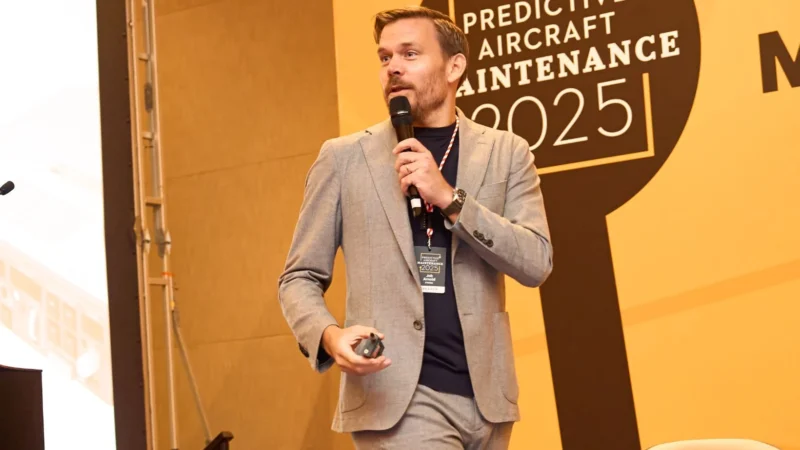The aviation sector was urged to unlock the power of the sharing economy to ensure it can execute on the promise of predictive aircraft maintenance.
Co-founder and chief executive of online USM marketplace STRADE, Job Arnold, told the first APAC edition of MRO Management’s Predictive Aircraft Maintenance (PAM) Conference that the sector needs to take a page out of the Airbnb or Uber book.
Showing an example of an airline email pleading for parts after an AOG, he said the sourcing of parts needs to be smarter. “Foresight alone is not enough to keep your aircraft flying. In the end it comes down to the execution.” he said.
“To be in full control, what we need is planning, knowing and sharing, and in that way, we can really close the gap and unlock the power of prediction by making parts available that you may not need and by getting the parts that you actually do need.”
Arnold said STRADE was developed to offer users full transparency from all the paperwork, genuine pricing, and a place where airlines can transact and be assured of getting the unit they need.
“It’s not only collecting all this data, it’s not only the power of the analysis, it’s actually being able to pre-position service teams and parts to actually make sure you can repair the machine the moment you think it needs that service.
“And for that, what we need is to plan ahead. We’ve talked a lot about that today; it’s the analysis, it’s the data crunching that we need to plan ahead. But we also need to find ways to source in a smarter way.
“I also strongly believe that we need to start circulating our material and not accumulating, not hording and stockpiling our material. It’s economically inefficient, it’s costly, and it’s costing our industry. We fundamentally need to do a couple of things differently in this industry, and it starts by being completely transparent.”
Arnold likened the issue of being able to source parts that are needed in aviation to the range anxiety drivers of electric vehicles feel.
While modern electric cars do provide transparency about how much range is left and the distance to the next charging point, they do not necessarily guarantee one is available.
He used the example of the Suez canal being blocked in 2021 by a single container ship – the Ever Given – costing the global economy $9 billion to illustrate the vulnerability and unpredictability of supply chains.
Arnold said while finding simply parts is difficult in aviation, there needs to be more collaboration and data sharing.
“I strongly believe that what this industry needs is that we circulate, that we connect, that we share data, not that we protect and that we hold on to our own data.
“If we give and we take, we can actually improve the supply chain, connect better and also deliver parts when they’re needed wherever.”
He added: “You need to give and then you can take – it’s really not a new phenomenon. There’s many sharing platforms out there already solving this whether that’s Airbnb or Uber, to give two very well-known examples. But the principle remains.
“If we can unlock the power of the parts that we all have by making them available when we don’t need them.
“And when we can rely on the data being presented to us, and we know that we can actually access parts when we need them, we can execute when we can trust in the data, and you can actually also get the parts that you need.
“In the end, it all comes down to making sure that you have the real parts, real prices, in real time, that you’re able to execute that you know what is there that you can rely on it.
“The essence of what we want to do is combine the knowing, the data, the analysis, everything that you do, with being able to find where my part is with smarter sourcing to execute and close the gap. That’s a two way street.”
READ MORE NEWS: ANA confirms its commitment to furthering the use of predictive maintenance
